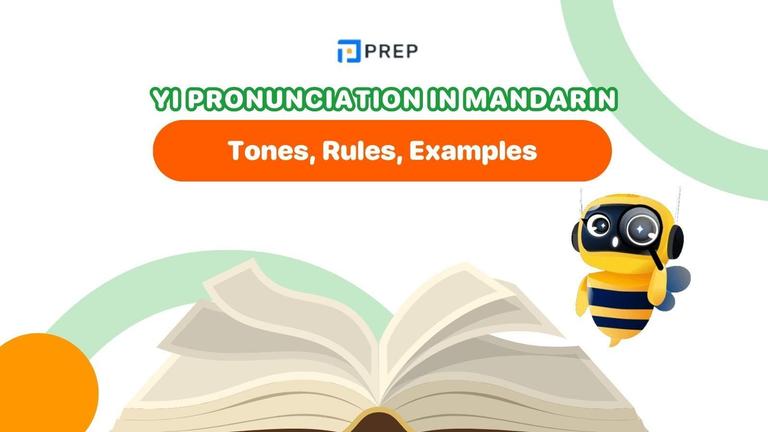Enhance English Pronunciation with Effective Techniques
Improving English pronunciation is essential for clear communication in both academic and professional settings. This guide explains core pronunciation elements, practical techniques, recommended tools, and self-assessment methods to help learners identify weaknesses and build stronger, more confident speaking skills.

I. Understanding English Pronunciation Basics
Before you focus on advanced techniques or digital tools, it’s important to understand the fundamentals of English pronunciation. Strong pronunciation skills are not about sounding like a native speaker, but about being easily understood, speaking with clarity, and delivering messages confidently.
Core Elements of English Pronunciation
English pronunciation is made up of several key components. Learning to recognize and develop each one helps improve your overall speaking fluency.
-
Individual Sounds (Phonemes): The smallest units of sound in English. Example: /θ/ (as in think) vs. /s/ (as in sink).
-
Word Stress: Emphasizing one syllable in a word more than others. Example: PREsent (noun) vs. preSENT (verb).
-
Sentence Stress: Highlighting certain words in a sentence to show importance.
-
Intonation: The rise and fall of pitch when speaking. It shows meaning, emotion, or emphasis.
-
Connected Speech: Sounds are blended in real speech — sounds disappear, change, or link together. Example: “What do you want?” → /wʌdə ju wɒnt/
Understanding and combining these elements is key to sounding natural and being clearly understood.
A solid grasp of core English pronunciation rules makes it easier to combine sounds, stress, and intonation accurately.
Common Difficulties Faced by English Learners
Many non-native English speakers experience similar pronunciation challenges, especially depending on their first language. Common difficulties include:
-
Confusing similar sounds – such as /r/ vs. /l/ or /b/ vs. /v/
-
Dropping or mispronouncing word endings – such as walked sounding like walk
-
Placing stress on the wrong syllable – e.g., saying comFORtable instead of COMfortable
-
Flat or robotic speech – lacking natural intonation and rhythm
-
Over-reliance on spelling – English spelling and pronunciation often don’t match (e.g., though vs. through)
The good news is that these issues can be improved with the right awareness and consistent practice.
Difficulties often arise when learners struggle to distinguish voiced and unvoiced sounds, which directly affects clarity.
Why Improving Pronunciation Matters
Strong pronunciation benefits learners in three major areas:
-
Clarity in Communication: Clear pronunciation prevents misunderstandings in daily conversation, classroom discussions, or job interviews.
-
Confidence while Speaking: You’re more likely to speak up and share ideas when you know your speech is understood.
-
Better Test Performance: In speaking tests like IELTS, TOEFL, and APTIS, pronunciation is a scoring criterion. Good pronunciation can significantly boost your band score.
Improving your pronunciation isn’t about sounding “perfect.” It’s about sounding clear, confident, and natural — and that makes all the difference in achieving your goals as an English learner.
II. Techniques to Enhance Pronunciation in English
Improving your pronunciation takes more than just repeating words — it requires active listening, focused practice, and proper feedback. Whether you're struggling with basic sounds or aiming to refine your fluency for professional or exam settings, these evidence-based techniques will help you learn the most efficient and practical ways to enhance your English pronunciation.
Observation and Shadowing Practice
Shadowing is one of the most effective ways to improve pronunciation. It involves listening to a native speaker and repeating their words immediately — copying their intonation, rhythm, stress, and even pauses.
How to do it:
-
Choose a short audio clip with a transcript (TED Talks, podcasts, YouTube).
-
Listen once carefully.
-
Replay the clip sentence by sentence, and try to imitate the speaker exactly.
-
Record yourself and compare your version with the original.
This method helps you get used to natural speech patterns and remove the “robotic” tone common in learner speech.

Daily exposure through passive listening also helps learners absorb natural rhythm and intonation patterns over time.
Minimal Pair Drills and Sound Discrimination Exercises
Minimal pairs are words that differ by only one sound (like ship vs. sheep). Practicing with these allows your ear and tongue to learn subtle differences between English phonemes.
Examples of minimal pairs:
-
/ʃ/ vs. /s/ → sheep / sleep
-
/b/ vs. /v/ → bat / vat
-
/iː/ vs. /ɪ/ → reach / rich
How to practice:
-
Use pronunciation apps or flashcards with audio.
-
Practice saying and hearing the differences.
-
Test yourself by listening and identifying the correct word.
By mastering minimal pairs, you develop sharper listening and pronunciation accuracy.
Practice Intonation and Word Stress for Natural Rhythm
Pronunciation isn’t just about sounds — it's also about how you say them. English uses stress and melody to deliver meaning and emotion.
Practice Areas:
-
Word stress: Emphasize the right syllable (e.g., phoTOgraph, not PHOtograph).
-
Sentence stress: Focus stress on content words (nouns, verbs) and reduce function words (articles, prepositions).
-
Intonation: Understanding rising and falling tones in questions, statements, or emotional expressions.
Example practice:
-
“Are you ready?” → rising tone = genuine question
-
“Yes, I am.” → falling tone = confident response
These are crucial for sounding natural and engaging in conversation or public speaking.
Record, Replay, and Self-Monitor
One of the most powerful improvements happens when you hear yourself. Recording allows you to objectively assess your pronunciation and pinpoint areas to fix.
Steps:
-
Record yourself reading a short text aloud.
-
Mark spots where your pronunciation seems unclear or unnatural.
-
Listen to a native version of the same paragraph.
-
Re-record and adjust based on what you notice.
You can also set a weekly schedule to record yourself talking about different topics — this creates measurable progress and builds confidence over time.
III. Tools and Resources to Improve English Pronunciation
Thanks to modern technology, improving your English pronunciation has never been more accessible. Whether you're learning on your own, practicing for a certification exam, or preparing for professional communication, a wide range of apps, online dictionaries, and learning platforms can support your progress.
Recommended Pronunciation Apps and Platforms
|
App / Platform |
Key Features |
|
ELSA Speak |
AI-powered pronunciation feedback, compares your speech to native models, offers custom lessons |
|
Speechling |
Record and compare yourself to native speakers, includes coaching feedback in premium version |
|
Forvo |
Community-built pronunciation database with audio recordings of words by native speakers |
|
YouGlish |
Search for real-life video examples of how words are pronounced in English (US, UK, AUS) |
|
Speakometer |
Detects mispronounced sounds using AI, shows progress for individual phonemes |
These tools are particularly helpful for:
-
Practicing individual sounds (phonemes)
-
Testing minimal pairs
-
Building good habits through repetition
-
Correcting subtle errors with real-time guidance
Online Dictionaries with Pronunciation Support
Online dictionaries are an underrated but powerful resource for pronunciation. They give access to professional audio recordings in multiple accents and IPA (International Phonetic Alphabet) transcriptions.
Top dictionaries to use:
-
Cambridge Dictionary – Clear audio in both British and American accents + stress markers and IPA.
-
Oxford Learner’s Dictionary – Designed for ESL learners; includes syllable division and stress.
-
Merriam-Webster – Great for learning American pronunciation, includes example audio and voice search.
Tips for use:
-
Always listen to both UK and US versions (if available).
-
Read the IPA transcription to understand sound structure.
-
Imitate and repeat the pronunciation multiple times.
Using reliable English pronunciation dictionaries allows learners to check IPA transcriptions and hear accurate native models.
Additional Learning Platforms and Materials
Some websites are specifically built to teach pronunciation through structured lessons, videos, and interactive exercises.
|
Platform |
What It Offers |
|
BBC Learning English – Pronunciation |
Video series on English sounds, connected speech, intonation |
|
Rachel’s English (YouTube) |
Detailed tutorials for American pronunciation and mouth positions |
|
English Central |
Video-based learning + speech recognition features |
|
FluentU |
Real-life video content with subtitles and quizzes to improve listening + speaking |
These resources are ideal for:
-
Watching mouth movements and listening carefully
-
Practicing connected speech and stress
-
Building listening and pronunciation skills at the same time
Bonus tip: Keep a "Pronunciation Notebook" where you record difficult sounds, useful phrases, and personal progress logs. Tracking small wins helps build momentum.

For learners who prefer guided progression, online English pronunciation courses offer structured lessons and consistent feedback.
IV. How to Identify and Correct Your Pronunciation Mistakes
Improving your pronunciation starts with one powerful skill: noticing your own mistakes. Many learners practice a lot, but without feedback or self-awareness, they repeat the same errors. In this section, we’ll explore how to diagnose pronunciation problems, understand why they happen (especially due to your first language), and apply practical fixes to develop fluency and clarity.
Techniques for Self-Evaluating Your Pronunciation
Before you can correct a mistake, you need to spot it clearly. The following self-assessment methods help you become more aware of how you sound and where things need work:
-
Record Yourself Speaking: Choose a short paragraph or even 5–6 free sentences. Record your voice and listen back critically.
-
Read Along with a Model: Use YouTube, TED Talks, or English audiobooks. Pause sentence by sentence and imitate, then compare.
-
Use a Pronunciation Checker App: Apps like ELSA Speak or Speakometer can point out specific sounds you're mispronouncing and help you hear the difference.
-
Ask a Friend or Teacher: Get an honest review from someone who has a strong command of English.
The goal is awareness — focus on just one or two consistent mistakes at a time instead of trying to be “perfect.”
Recognizing Patterns from Your Native Language
Your first language (L1) plays a big role in how you pronounce English. Some sounds may not exist in your language, or may be used differently — and that's okay! But by learning how your L1 interferes with English sounds, you can target those weaknesses more easily.
Common Interference Patterns by Language:
-
Vietnamese speakers often drop final consonants (bake → bay) and struggle with sounds like /θ/ (“think”) or /ʒ/ (“measure”).
-
Mandarin speakers may confuse /l/ and /r/, or add extra vowels to consonant clusters (e.g., street → sutreet).
-
Spanish speakers may pronounce /b/ and /v/ the same, or add strong vowel sounds after final consonants.
What to do:
-
Research “pronunciation errors for [your native language] speakers.”
-
Keep a running list of sounds or words that consistently challenge you.
-
Create personal practice drills focused just on these items.

Practical Strategies to Fix Common Pronunciation Problems
Once you've identified your weak spots, it's time to apply consistent, focused practice. Here are proven strategies to help you correct them:
-
Use Minimal Pair Training: Practice sounds that are similar in pairs (ship/sheep, bat/bet) to sharpen your distinctions.
-
Work on Word and Sentence Stress: English relies on rhythm and emphasis more than some languages. Practice shifting stress and listening for natural patterns.
-
Practice with the IPA (International Phonetic Alphabet): Learning IPA helps you decode correct sound patterns instead of depending on confusing English spelling.
-
Join Speaking Groups or Get Feedback: Practice with real people regularly (online or offline). Native speakers or advanced learners can help correct in real time.
-
Be Patient and Keep Practicing: Progress won't come overnight. Small, steady improvements add up — especially with clear goals and feedback.
Remember: The purpose of pronunciation practice is not to eliminate your accent — it's to speak clearly, naturally, and be understood confidently in any situation.
Above is the full article by PREP on how to enhance pronunciation in English through proven techniques, tools, and daily habits. We hope this guide helps you understand the key principles of pronunciation, practice with confidence, and feel more prepared when communicating in real-life situations, whether in exams, classrooms, or professional settings. Keep exploring with PREP to strengthen your English, step by step.

Hi I'm Chloe, and I am currently serving as an Product Content Administrator at Prep Education. With over five years of experience in independent online IELTS study and exam preparation, I am confident in my ability to support learners in achieving their highest possible scores.
Comment
Premium content
View allPersonalized roadmap
Most read












